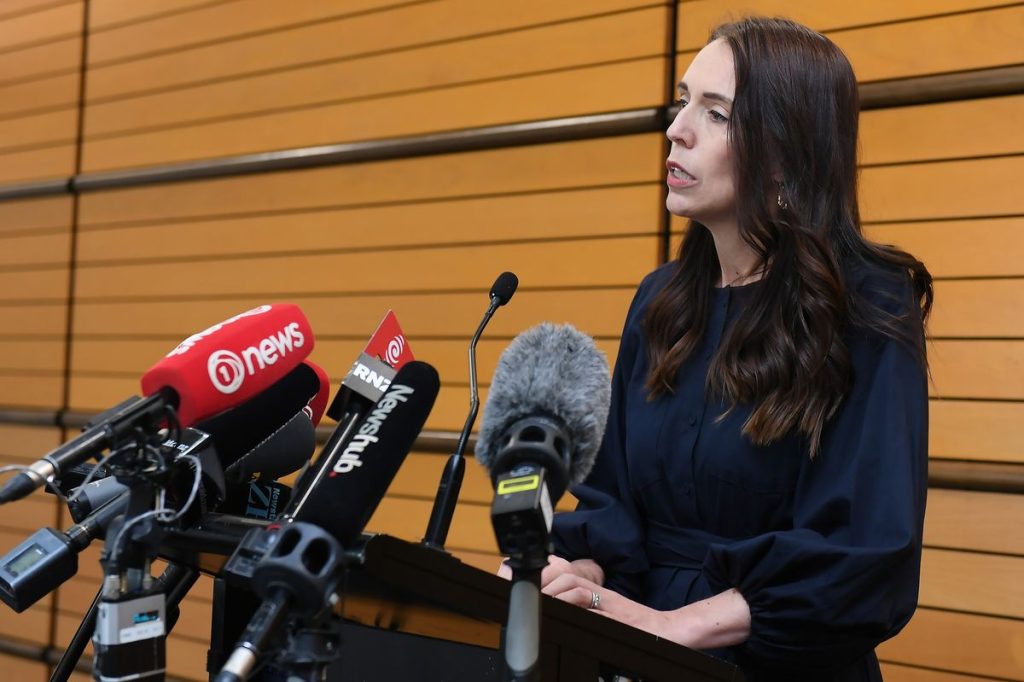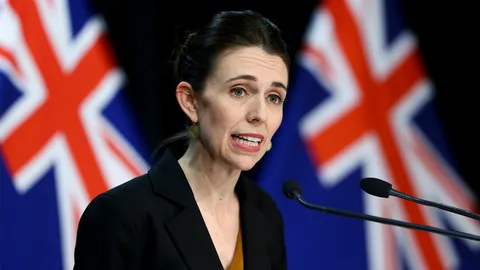Jacinda Ardern announced her resignation from the position of Prime Minister and leader of the New Zealand Labor Party. She said that more than 5 years of leadership have exhausted her and she can no longer continue. This female politician will resign by early February at the latest and seek re-election.
Ardern, 42, said in a news conference: “This summer, I was hoping to find a way to prepare not just for another year, but for another term; but impossible. I know that after this decision there will be many discussions about what is the real reason for my work. The only interesting thing you will find is that after six years of some big challenges is that I am also a person; politicians are humans too. We give everything we can, as long as we can, but in the end, the time comes. And for me, the time has come.
This role needs responsibility
“The responsibility is to know when you are the right person to lead and when you are not,” Ardern told attendees at a Labor party meeting in Napier. I know what it takes. And I know I don’t have enough left to do justice. it’s simple.
Support for New Zealand’s Labor Party is at its lowest since Ardern took office in 2017 as the world’s youngest female head of government, a recent poll shows.
Ardern will leave the prime minister’s office by February 7 at the latest, with the New Zealand Labor Party voting for a new leader on Sunday. The party leader will be the prime minister until the next general election. Ardern’s leadership period will end on February 7 at the latest, and the general election will be held on October 14.
Future of the Labor Party
Ardern said she believed Labor would win the next election.
Grant Robertson, New Zealand’s deputy prime minister who also serves as finance minister, said in a statement that she is not seeking to be the next leader of the Labor Party.
Ardern’s successor as party leader and prime minister faces a tough test in a general election, with the country expected to plunge into recession in the next quarter.
Commentators point to several of Ardern’s ministers as possibilities for the role, including former Covid minister and current education and police minister Chris Hipkins and current justice minister Kerry Allen.
Ardern said she was not resigning because the job was difficult, but because she believed others could do a better job.
She addressed her daughter Niv, who was looking forward to her mother’s presence when she started school this year; and told her longtime partner Clarke Gifford that it was time for them to get married.
Ardern entered the world stage in 2017 as the youngest female head of state in the world at the age of 37. She passionately fought for women’s rights and to end child poverty and economic inequality in the country.
Eight months after becoming the prime minister, her child was born; and she was the second elected leader of Pakistan, after Benazir Bhutto, who became a mother during the country’s presidency.

Great Leader with a big heart
Her compassionate leadership style was reinforced by her response to the mass shootings at two mosques in Christchurch; in 2019 that left 51 dead and 40 injured. Fareed Ahmed, a survivor, and husband of a Christchurch attack victim said: “Her global call for human unity with compassion made me cry with joy then; and it makes me cry now.
He added: “Her kindness, wisdom, and efforts for a peaceful world have been remarkable examples for world leaders. I understand that she needs to rest and I wish her the best in life”.
Ardern was quick to call the attacks terrorism, and the day after the attack; she donned the hijab in a meeting with the Muslim community, telling them the entire country was united in grief. She promised to carry out fundamental reforms in the gun law within a month.
Responses from other politicians
“Jacinda Ardern showed the world how to lead with reason and strength. She has shown that empathy and insight are powerful leadership qualities”, Australian Prime Minister Anthony Albanese said on Thursday.
Ardern has been praised across the political spectrum for her handling of the Covid-19 pandemic; which saw the country face some of the toughest measures globally but resulted in one of the lowest casualties.
Her popularity also declined last year. As inflation has reached its highest level in three decades; the central bank has sharply increased interest rates and crime has increased.
The country has become increasingly politically divided over issues such as the government’s overhaul of its water infrastructure; and the introduction of a plan to curb greenhouse gas emissions.
Ardern and Labor have seen support slip away in the polls. Political commentators say Ardern’s resignation will strengthen the national opposition Conservative Party; but could also give Labor a chance to reconsider and change its position before the election.
Former Labor candidate Josie Pagani said: “There is the potential for a Labor leader to come in and return Labor to a party that focuses on the issues that voters care about; the cost of living, inflation, and making sure that wage earners; the more they receive, the more concentrated it is”.
Source: ISNA News Agency


